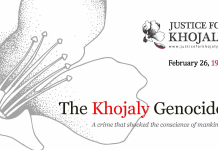Qamar Bashir
On the website of the Ministry of Information, you will find six acts, nine Ordinances, seven regulations, three codes of conduct, and fourteen rules that are enacted to directly govern the media in some way. In fact, there are over 52 laws, rules, regulations, and codes of conduct that have a bearing on media freedom and give the government enough clout to gag and re-gag the media, leaving a small window for them to enjoy the freedom of speech and press guaranteed by article 19 of the constitution.
Now another amendment in the PEMRA, Act 2023 has been introduced, redefined the disinformation as verifiably false, misleading, manipulated, created or fabricated information which is disseminated or shared with the intention to cause harm to the reputation of or to harass any person for political, personal, or financial interest or gains without making an effort to get other person’s point of view or not giving it proper coverage and space, but does not include misinformation”.
This definition, when carefully examined, has expanded its scope to include not only people who create news, but also those who disseminate and share it. It follows that journalists who bring in the news, the TV network or newspaper that publish and broadcast the news, and all members of the public who read, watch, or share the suspected disinformation news will all be charged under this statute.
At the same time, it gives journalists, newspapers, and channels the right to seek the opinion and point of view of the “other person” and give it proper coverage and space,” which means that, as of now, journalists, newspapers, and channels are bound by law to take the point of view of the PTI chairman, who yet has not been convicted under any Pakistani law, but has been barred from appearing in any media. Though he has been charged of corruption, insurgency, planning attack on the state, violating the country secrecy act and many other omissions or commissions but media can neither cover his or his party’s engagement or allow him to defend the charges by providing him proportional space in the media.
failing which they would by imposing a fine starting from 1 million rupees to 10 million rupees.
The definition has also rendered the amendment’s purpose pointless. It has contracted rather than expanded its scope. The scope of ‘disinformation’ has been limited to ‘the reputation’ of or to ‘harass’ any ‘person’ for political, personal, or financial gains or interests. It indicates that the scope of disinformation is limited to individuals and does not include disinformation pertaining to the national or international financial, economic, political, security, or foreign affairs sectors. In doing so, it has given journalists, newspapers, and channels carte blanche to disseminate any national or international disinformation.
The author of the definition has weakened the efficacy and reach of other media laws in an effort to restrict media freedom. It had caused significant difficulty for the regulator. Before issuing any charge sheet to any journalist, newspaper, or channel, PEMRA now requires the collection of introvertible evidence demonstrating that the alleged disinformation was created, manipulated, and fabricated for ‘political’, ‘personal’, or ‘financial’ gain.
Throughout my service of over 30 years, I was intimately familiar with PEMRA’s capabilities and capacities. PEMRA has neither the skills, capabilities, nor the capacity to collect any type of concrete and intro convertible evidence against any journalist that could establish any ‘political gain’ that cannot be quantified by any stretch of the imagination, nor does it have any mechanism to collect evidence of personal or financial gains.
The PEMRA will likely receive input from law enforcement agencies, such as the FIA, IB, FBR, or ISI, if they are able to quantify and prove intangible political, financial, or personal gains in order to file charges against media personnel. Even if the agencies provide evidence, the indictment will not withstand the court’s rigorous standards and will likely be thrown out after one or two proceedings. In fact, this definition appeared to be person-specific to journalists such as Imran Riaz, Moed Pirzada, Raza Rumi, Shaheen Subahi, and others, and to have no bearing on public, national or international interests.
The new definition introduced by the government in the PEMRA Act protects individuals, in contrast to legislation enacted in many other nations that places the public interest above all else. Singapore’s Protection from Online Falsehoods and Manipulation Act (POFMA) defines disinformation as “false or misleading information that is created, published, or shared with the intent to deceive the public.” Even more precise and well-considered is the French definition of disinformation. The French law defines disinformation as “any false or misleading information that is intentionally disseminated.” The German law on social networks defines disinformation as “any intentionally false or misleading information that is disseminated.” The Russian law on information, information technologies, and information protection defines disinformation as “information that is intentionally deceptive or distorted and spread with the intent to deceive. Since the First Amendment of the U.S. Constitution protects free speech, the U.S. Congress and Senate cannot pass any laws pertaining to the media or free speech. India has a number of laws relating to disinformation, although they are not expressly labelled as such. The Information Technology (Intermediary Guidelines and Digital Media Ethics Code) Rules, 2021, however, require social media platforms to remove or disable access to content deemed detrimental or deceptive.
Freedom to hold an opinion and free expression are fundamental for a thriving democracy. This right is recognized by various international instruments including the United Nations Declaration of Human Rights (UDHR) and the International Covenant on Civil and Political Rights (ICCPR). Right to information (RTI) is a primary element to hold an opinion and independent and diverse media also play a central role in informing people and enabling them to hold their opinion. Nevertheless, an enabling legal framework to: promote and protect people‟s right to information; curb/ restrict secretive practices of the government; and ensure independence and diversity of media is essential. In Pakistan, the right to freedom of expression and speech had been recognized by the Constitutions of 1956 and 1962. The Constitution of Pakistan, 1973 includes a specific provision (Article 19) on freedom of expression and speech. However, the right to information was recognized as a constitutional right through the Eighteenth Amendment in 2010. The Prevention of Electronic Crimes Act 2016 (PECA) criminalizes a number of activities related to electronic media, including the transmission of false or misleading information. Section 20 of PECA specifically prohibits the publication of false information that is intended to harm the reputation of a person or institution. The PPC contains a number of provisions that deal with defamation, including Section 499, which makes it an offense to publish anything that is likely to harm the reputation of another person. The Defamation Ordinance 2002: This ordinance provides a civil remedy for defamation. It allows a person who has been defamed to sue the person who defamed them for damages. Even the Prevention of Electronic Crimes Act 2016 (PECA) of Pakistan supports a reasonable definition of disinformation. Section 20 of PECA defines misinformation as “any information that is false, misleading or inaccurate and which is intended to deceive or cause harm.”
It is fascinating to note that none of these laws actually impose censorship, but rather the worst form of self-censorship, which has negative effects on both individuals and society as a whole. It places journalists in a constant state of dread when expressing ideas or opinions, restricts diversity of thought, and stifles intellectual discourse. It has a debilitating effect on open and honest communication and creates a culture of fear in which individuals are reluctant to discuss significant issues or challenge prevailing norms. It takes a significant toll on mental and emotional health, exposes media professionals to anxiety and stress, inhibits personal development and self-expression, and discourages truth-telling.
Therefore, rather than finding methods to limit the media, societies should promote an atmosphere where free speech is protected and respected. Regarding this amendment, the President, as head of parliament, is likely to send it back to the Prime Minister for reconsideration, as it is flawed and ineffective. By that time, this assembly will have been dissolved, and the amendment will most likely die of natural causes.

















